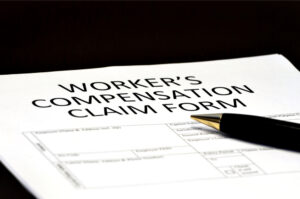 Most Illinois workers are aware of essential Workers’ Compensation benefits such as covered medical treatment disability payments. However, there is one other benefit that is essential for their financial security. It’s called ‘wage differential,’ and it can ensure you can go a long way in reducing your stress if you suffer from serious workplace injuries.
Most Illinois workers are aware of essential Workers’ Compensation benefits such as covered medical treatment disability payments. However, there is one other benefit that is essential for their financial security. It’s called ‘wage differential,’ and it can ensure you can go a long way in reducing your stress if you suffer from serious workplace injuries.
What is a Wage Differential?
If your workplace injury incapacitates you to the point that you have to quit your job, you may be eligible for a wage differential settlement.
Here is how it works. Whether your injuries prevent you from working permanently or temporarily, your employer may offer to give you ‘light duty’ that can accommodate your physical limitations.
If the new position hurts your salary, you are eligible for a solution that pays you part of the difference. It is called wage differential benefits, and it can only be applied if you qualify for Workers’ Compensation.
If you are eligible, you are entitled to 2/3 of the difference between your old wages and your light-duty salary as per wage differential laws. So not only will you get a regular paycheck for your new position, but you will also get a workers’ compensation check for 2/3rds of the difference between the wages.
To qualify for a wage differential settlement, you have to prove that you cannot pursue your original and customary line of employment. An experienced Workers’ Compensation lawyer in Antioch can help you establish this and calculate the amount you can receive. They can also help you determine if you are eligible for this award or not.
If your light-duty job puts your recovery and health at risk, you are a good candidate for temporary total disability (TTD) payments. You can also claim this benefit if your employer is unable to accommodate your limitations at work.
Denied Wage Differential Payments? Here is What You Should Do
The Illinois Workers’ Compensation Act describes how and when an injured employee is eligible for wage differential payments. However, this doesn’t mean that employers and insurance companies will comply. In some cases, they may try to withhold benefits by saying you are ineligible.
Contact us to discuss your legal options if you or someone you know qualifies for wage differential payments, but cannot get them because of uncooperative employers/insurance companies. As a dedicated and skilled Workers’ Compensation lawyer in Antioch, Robert Edens can develop a strategy that can ensure you get the compensation you deserve. His team of lawyers has recovered millions of dollars in claims for their clients. Ensuring you can get a wage differential settlement is barely a challenge for them.

You can get in touch with him and his team of workers’ compensation lawyers at the Law Offices of Robert T. Edens in Antioch, Waukegan, Libertyville, Woodstock, and Chicago, IL. At this point, the worst thing you can do is rely on advice from your employer or insurance company. They may try to sabotage your claim. We can ensure they don’t get away with it. Get in touch with us for a consultation today!


 Illinois’ workers’ compensation law is based on a
Illinois’ workers’ compensation law is based on a  Accidents are a common occurrence in the workplace. You can fall off a ladder and break your arm, trip over wires and sprain your ankle or get
Accidents are a common occurrence in the workplace. You can fall off a ladder and break your arm, trip over wires and sprain your ankle or get  Workers’ compensation serves as a safety net for employees faced with a work-related injury. It covers their medical bills and rehabilitation costs, and other damages such as lost wages resulting from the injury. They also provide death benefits to dependents of a worker who is killed in a work-related accident. In 2018 alone, around
Workers’ compensation serves as a safety net for employees faced with a work-related injury. It covers their medical bills and rehabilitation costs, and other damages such as lost wages resulting from the injury. They also provide death benefits to dependents of a worker who is killed in a work-related accident. In 2018 alone, around  Although working conditions have improved over
Although working conditions have improved over  If you’re an independent contractor, one of your major concerns might be whether you can collect workers’ compensation or not. This guide will provide you with a comprehensive answer:
If you’re an independent contractor, one of your major concerns might be whether you can collect workers’ compensation or not. This guide will provide you with a comprehensive answer: When a workers’ compensation claim is denied, it can be quite shocking, but the good news is that it is not the end of the road. A Waukegan workers’ compensation attorney can walk you through the appeal case but before that, make sure that your claim was denied without reason.
When a workers’ compensation claim is denied, it can be quite shocking, but the good news is that it is not the end of the road. A Waukegan workers’ compensation attorney can walk you through the appeal case but before that, make sure that your claim was denied without reason. The COVID-19 pandemic has forced more employees in their homes due to quarantine than businesses can handle. While granting worker’s compensation in these unprecedented times is tricky, professionals that deserve to be compensated are frontline and healthcare workers who are on the front lines trying to keep the pandemic at bay.
The COVID-19 pandemic has forced more employees in their homes due to quarantine than businesses can handle. While granting worker’s compensation in these unprecedented times is tricky, professionals that deserve to be compensated are frontline and healthcare workers who are on the front lines trying to keep the pandemic at bay. 